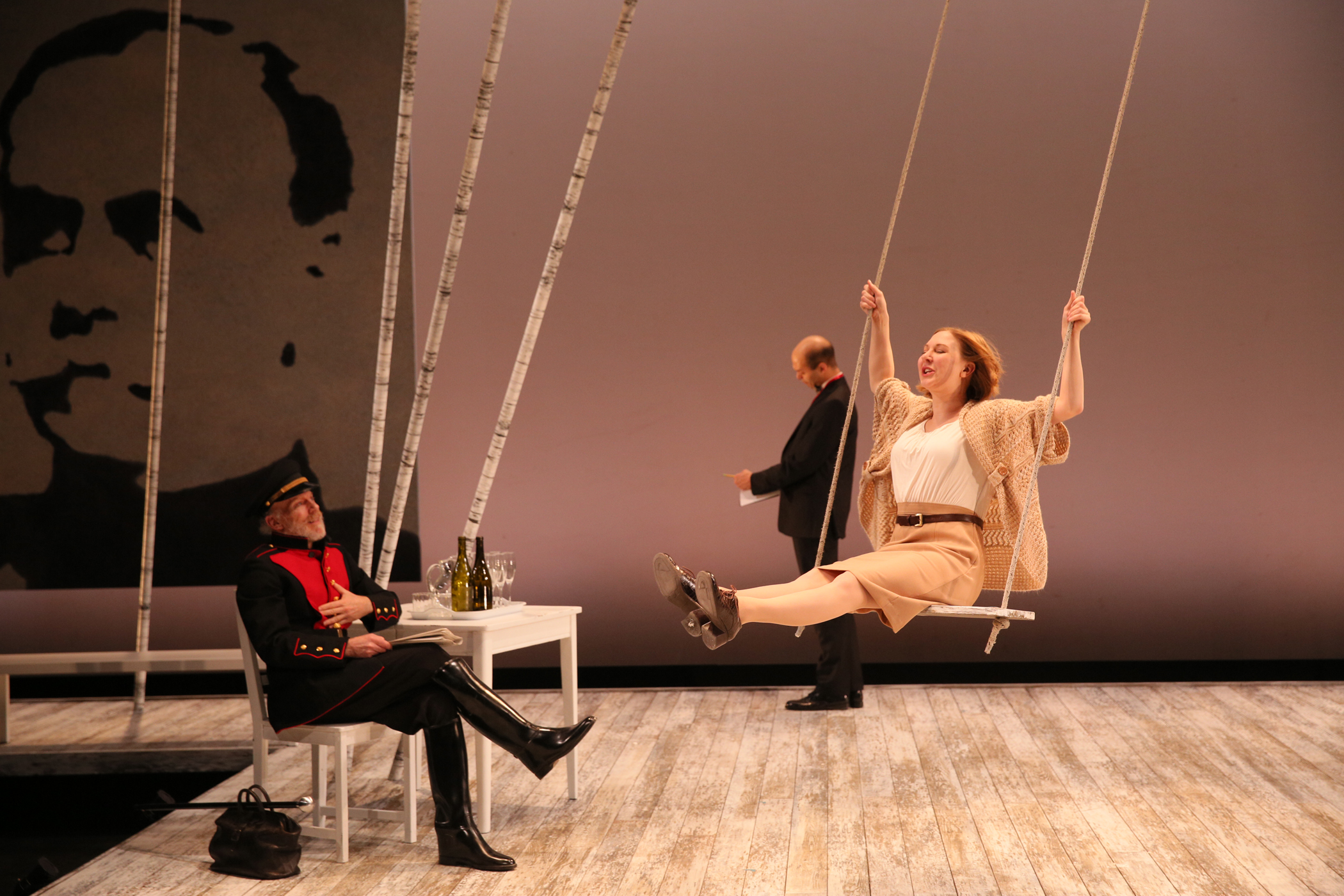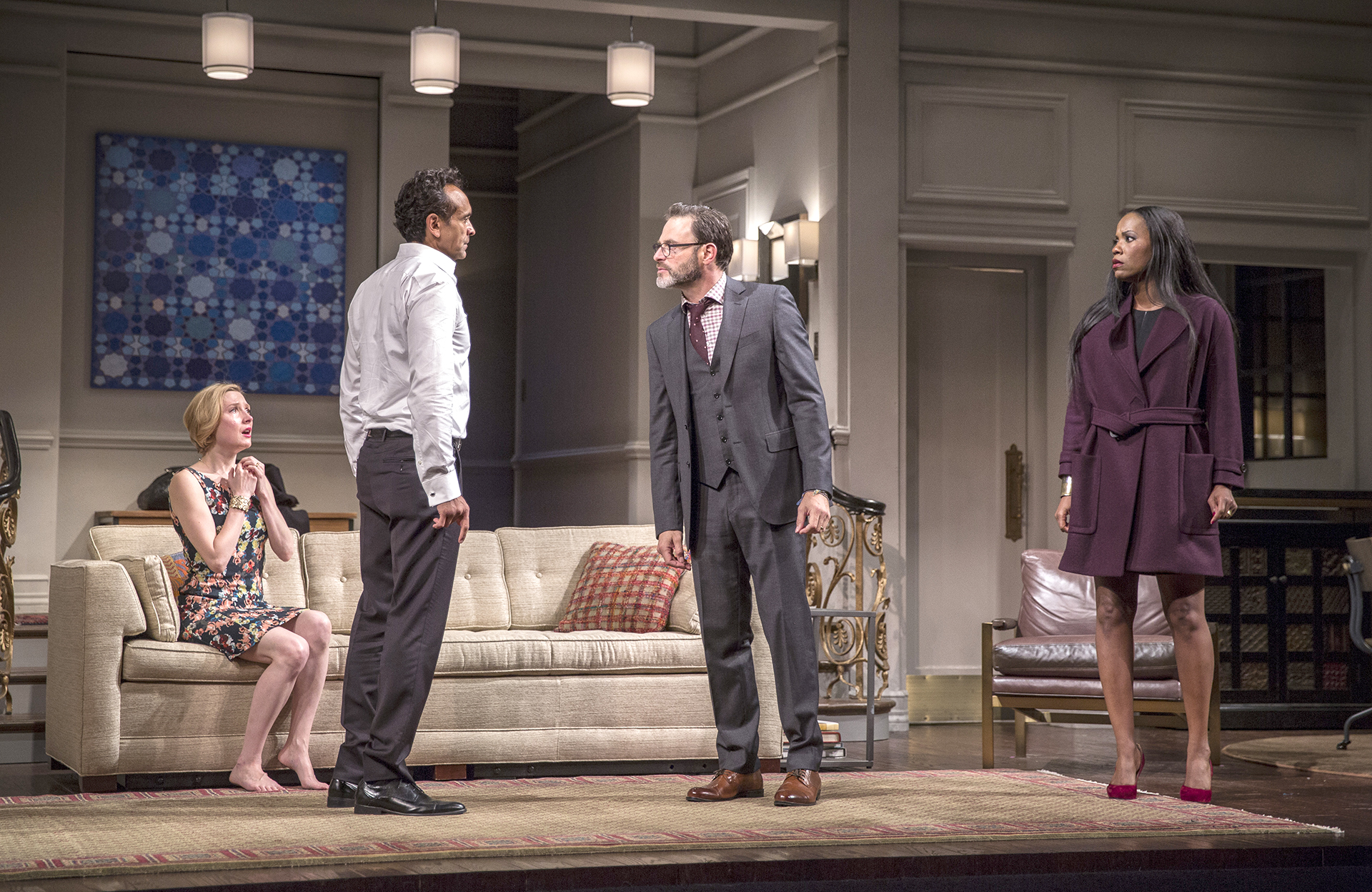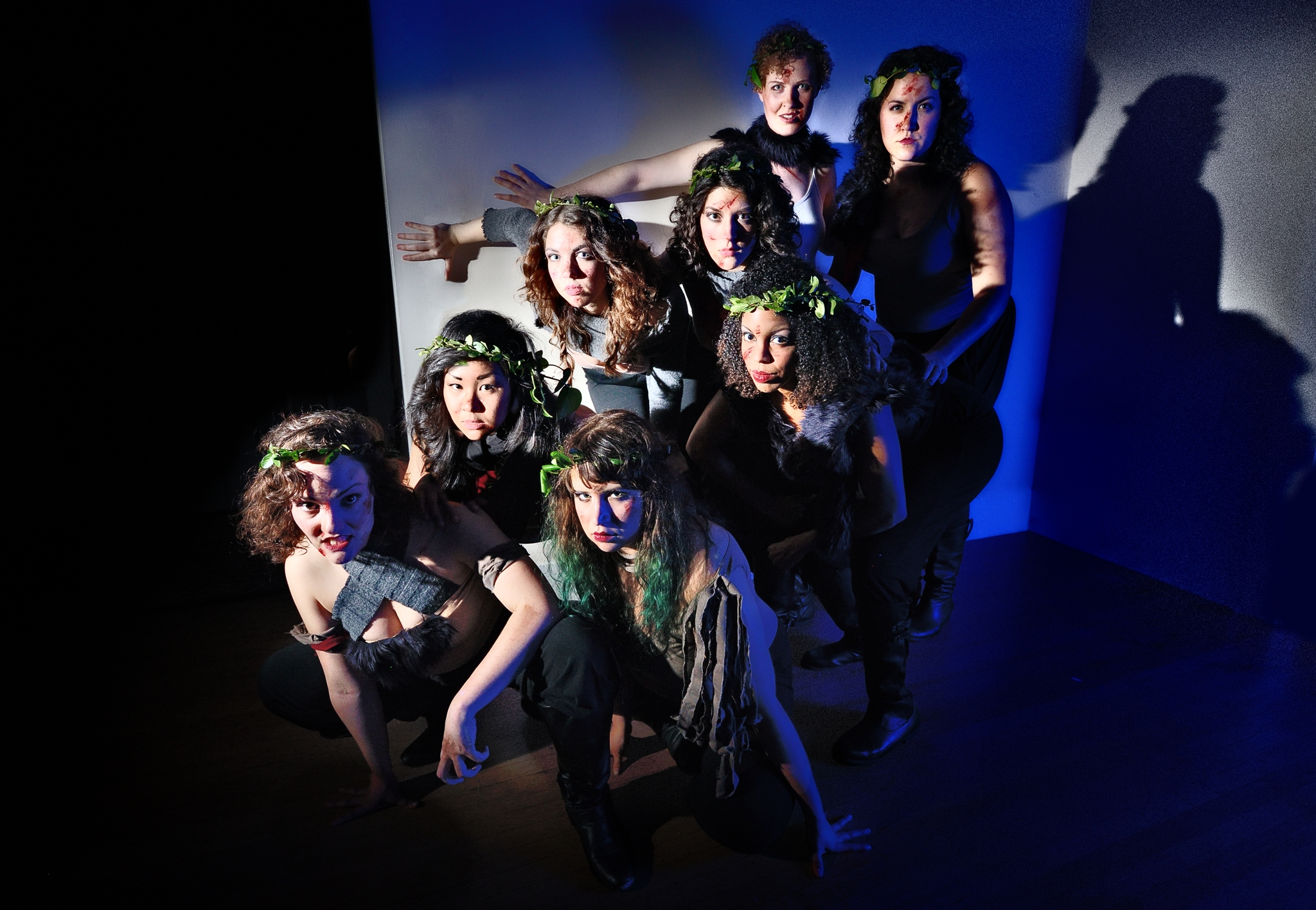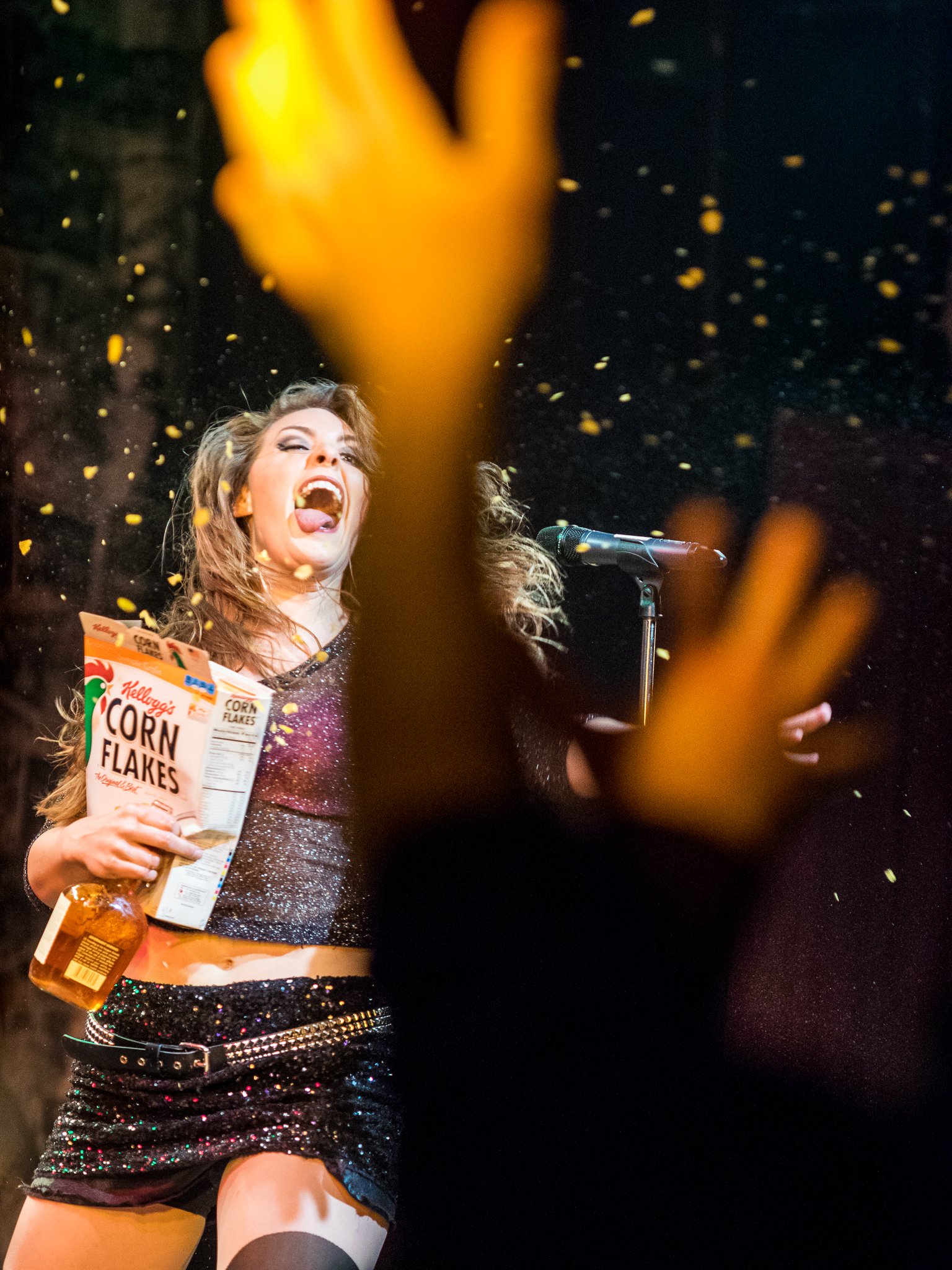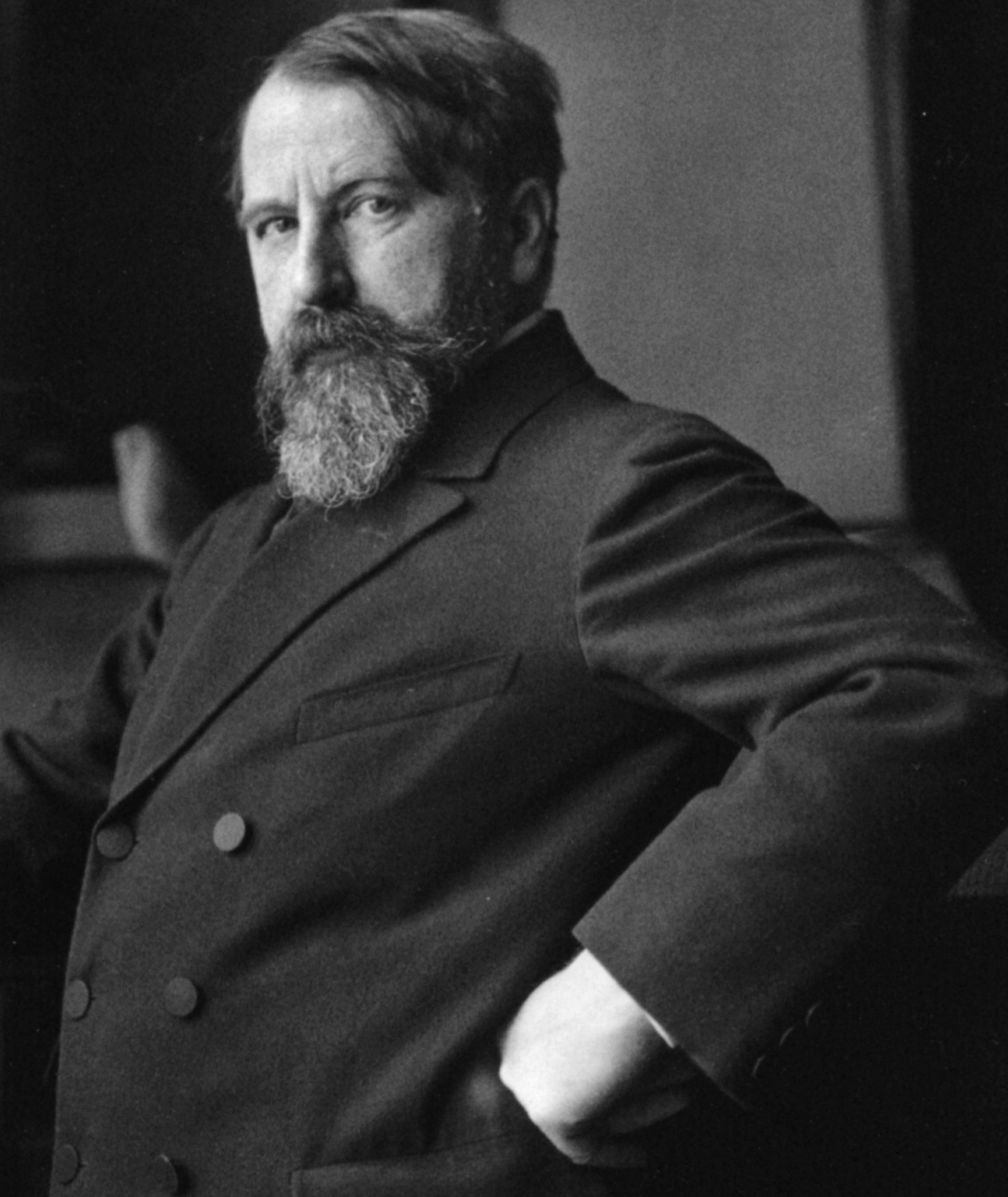In 1995, a production of The Three Sisters at Chicago’s Goodman Theatre altered my entire existence and activated an adoration of all things Chekhov. Twenty years later, The Seagull Project’s current revival only increases that ardor.
The plot of this 1900 classic can be summed up as “Three sisters want to move to Moscow and never do.” They pine for, and opine about, a sophisticated life in their urbane birthplace; yet, because of bad marriages, gambling addictions, and myriad other offstage conflicts, their dream remains unfulfilled. However, Chekhov marvelously infuses his static story with melancholy wit, as Olga (Julie Briskman), Masha (Alexandra Tavares), and Irina (Sydney Andrews) lament living in a provincial town where knowing three languages is “an unnecessary encumbrance, like a sixth finger.”
Chekhov resides somewhere between naturalism and a heightened, almost enchanted realm. Directed by John Langs, this production expertly achieves both effects, allowing our imaginations to roam between them. Jennifer Zeyl’s simple, stark white set transports us to dull, wintery Russian hinterlands while providing an impeccable canvas for Robert J. Aguilar’s evocative lighting. Doris Black’s anachronistic costumes mix styles and periods; each sister is dressed differently to indicate her distinct personality and internal state. Black even boldly outfits Natasha (brother Andrey’s low-class wife, played by Hannah Victoria Franklin) in modern-day lingerie, which no respectable woman in imperial Russia would wear to greet her guests.
True to the Stanislavsky tradition, this is a well-rehearsed ensemble. Briskman, Tavares, and Andrews adroitly ensnare you in their characters’ anticipations and agonies. It’s impossible not to feel empathy. When Olga exclaims her exhaustion, you feel fatigued. When Masha bemoans her boredom, you experience ennui. When Irina specifies the satisfaction of work (a novelty for women in pre-Soviet times), you desire to don a blue collar. These splendid performances live up to the stellar script.
Why, 100 years after the revolution put an end to Chekhov’s Russia, does this masterpiece still hold up? Hope and despair are timeless. Most of us “know,” like the Prozorov daughters, that we’ll be happier when we lose weight, get that job, or meet that special someone. And the lack of a deus ex machina ending—or any clear resolution—in Chekhovian drama leaves us haunted and forever suspended. Each of us has our own unsatisfied objective. Our own Moscow.
stage@seattleweekly.com
THE THREE SISTERS ACT Theatre, 700 Union St., 292-7676, acttheatre.org. $15–$25. 7:30 p.m. Thurs.–Sat. plus 2 p.m. Sun. Ends Feb. 8.
